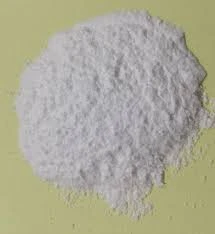- Afrikaans
- Albanian
- Amharic
- Arabic
- Armenian
- Azerbaijani
- Basque
- Belarusian
- Bengali
- Bosnian
- Bulgarian
- Catalan
- Cebuano
- Corsican
- Croatian
- Czech
- Danish
- Dutch
- English
- Esperanto
- Estonian
- Finnish
- French
- Frisian
- Galician
- Georgian
- German
- Greek
- Gujarati
- Haitian Creole
- hausa
- hawaiian
- Hebrew
- Hindi
- Miao
- Hungarian
- Icelandic
- igbo
- Indonesian
- irish
- Italian
- Japanese
- Javanese
- Kannada
- kazakh
- Khmer
- Rwandese
- Korean
- Kurdish
- Kyrgyz
- Lao
- Latin
- Latvian
- Lithuanian
- Luxembourgish
- Macedonian
- Malgashi
- Malay
- Malayalam
- Maltese
- Maori
- Marathi
- Mongolian
- Myanmar
- Nepali
- Norwegian
- Norwegian
- Occitan
- Pashto
- Persian
- Polish
- Portuguese
- Punjabi
- Romanian
- Russian
- Samoan
- Scottish Gaelic
- Serbian
- Sesotho
- Shona
- Sindhi
- Sinhala
- Slovak
- Slovenian
- Somali
- Spanish
- Sundanese
- Swahili
- Swedish
- Tagalog
- Tajik
- Tamil
- Tatar
- Telugu
- Thai
- Turkish
- Turkmen
- Ukrainian
- Urdu
- Uighur
- Uzbek
- Vietnamese
- Welsh
- Bantu
- Yiddish
- Yoruba
- Zulu
Nov . 12, 2024 14:57 Back to list
gentamicin sulfate for horses
Gentamicin Sulfate for Horses A Comprehensive Overview
Gentamicin sulfate is an aminoglycoside antibiotic commonly used in veterinary medicine, particularly for horses. Its primary function is to combat infections caused by susceptible bacteria, making it a crucial component in the therapeutic arsenal for equine practitioners. This article aims to explore the uses, dosage, side effects, and important considerations regarding gentamicin sulfate in horses.
Mechanism of Action
Gentamicin works by inhibiting protein synthesis in bacteria, which ultimately leads to cell death. It is effective against a wide range of Gram-negative and some Gram-positive bacteria. This makes gentamicin an invaluable tool in treating infections of the respiratory tract, urinary tract, skin, and soft tissues in horses.
Indications for Use
Veterinarians commonly prescribe gentamicin sulfate for various conditions, including
1. Bacterial Infections It is primarily used to treat infections caused by bacteria that are sensitive to gentamicin, such as *Escherichia coli*, *Pseudomonas aeruginosa*, and other aerobic Gram-negative bacteria. 2. Post-Surgical Infections After surgical procedures, especially those involving the skin or soft tissue, gentamicin can help prevent or treat secondary infections. 3. Septicemia and Pneumonia In cases of severe systemic infections or lung infections, gentamicin can be an effective treatment option. 4. Musculoskeletal Infections It is also useful in treating joint and bone infections in horses.
Dosage and Administration
Gentamicin sulfate is available in various forms, including injectable solutions and topical formulations. The dosage typically varies based on the severity of the infection, the type of bacteria involved, and the horse's weight. A common dosage regimen is between 2.2 to 4.4 mg/kg of body weight administered intravenously or intramuscularly every 24 hours. It is essential for veterinarians to adhere to the recommended guidelines and adjust dosages based on individual patient needs and response to treatment.
gentamicin sulfate for horses

Before administering gentamicin, veterinarians may perform susceptibility testing to ensure the bacteria causing the infection are sensitive to the antibiotic
. This is crucial as resistance patterns can vary widely between different geographic regions and types of infections.Side Effects and Precautions
While gentamicin is generally safe when used appropriately, it can have adverse effects, especially if used inappropriately or for prolonged periods. Potential side effects include
- Nephrotoxicity Gentamicin can be toxic to the kidneys, leading to acute kidney injury. Regular monitoring of kidney function is necessary during treatment, particularly in horses with pre-existing kidney conditions.
- Ototoxicity High doses or prolonged use may result in damage to the inner ear, leading to hearing loss or balance issues.
- Allergic Reactions Some horses may experience allergic reactions to gentamicin, which can manifest as swelling, hives, or respiratory distress.
Conclusion
Gentamicin sulfate is an effective antibiotic used in the treatment of various bacterial infections in horses. While its benefits are significant, careful consideration must be given to dosage, potential side effects, and monitoring during treatment. The importance of working closely with a veterinarian cannot be overstated, as they will provide the necessary guidance to ensure the safe and effective use of gentamicin in managing equine health. As with any medical treatment, the goal is to optimize the health and well-being of the horse while minimizing risks and complications.
-
Guide to Oxytetracycline Injection
NewsMar.27,2025
-
Guide to Colistin Sulphate
NewsMar.27,2025
-
Gentamicin Sulfate: Uses, Price, And Key Information
NewsMar.27,2025
-
Enrofloxacin Injection: Uses, Price, And Supplier Information
NewsMar.27,2025
-
Dexamethasone Sodium Phosphate Injection: Uses, Price, And Key Information
NewsMar.27,2025
-
Albendazole Tablet: Uses, Dosage, Cost, And Key Information
NewsMar.27,2025













